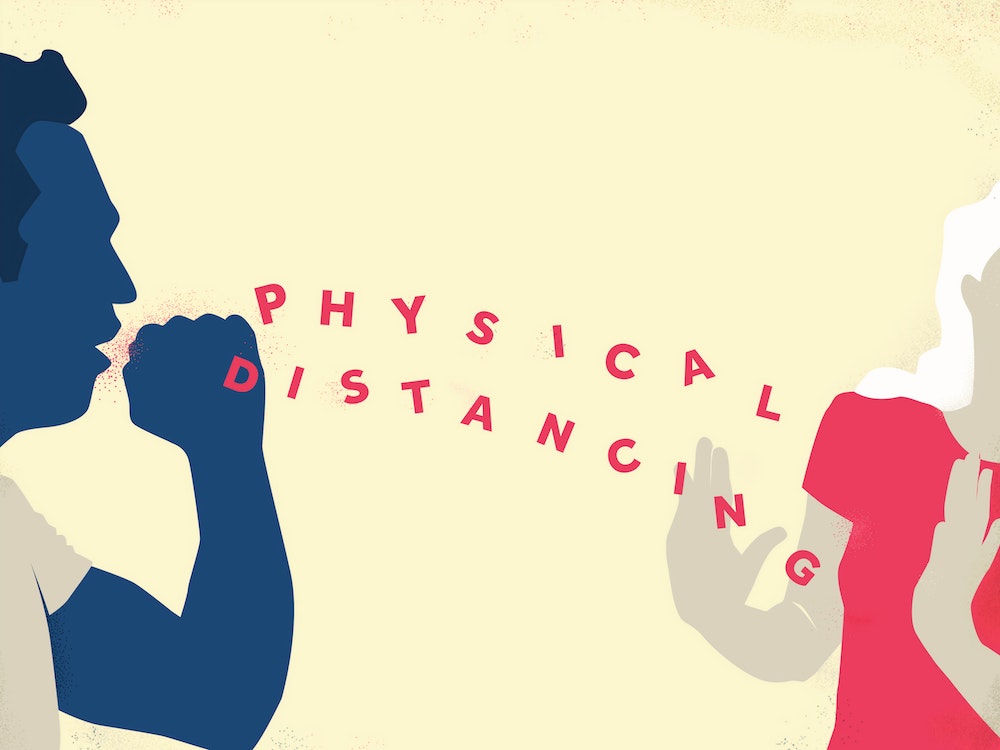Source: CDC.gov
Based on what we know at this time, pregnant people might be at an increased risk for severe illness from COVID-19 compared to non-pregnant people. Additionally, there may be an increased risk of adverse pregnancy outcomes, such as preterm birth, among pregnant people with COVID-19. Therefore, if you are pregnant, be mindful about reducing your risk of getting sick. If you are caring for children, you can teach them everyday steps (such as proper handwashing) to help them stay healthy and, in turn, help protect yourself and your family.
Reduce your risk of getting COVID-19.
It is especially important for people at increased risk for severe illness from COVID-19, and those who live with them, to protect themselves from getting COVID-19.
The best ways to protect yourself and to help reduce the spread of the virus that causes COVID-19 are to:
Limit your interactions with other people as much as possible.
Take precautions to prevent getting COVID-19 when you do interact with others.
If you start feeling sick and think you may have COVID-19, call your healthcare provider within 24 hours.
Venturing out into a public setting? What to consider before you go.
As communities and businesses across the United States are opening, you may be thinking about resuming some activities, running errands, and attending events and gatherings. There is no way to ensure you have zero risk of infection, so it is important to understand the risks and know how to be as safe as possible.
People who are pregnant, and those who live with them, should consider their level of risk before deciding to go out and ensure they are taking steps to protect themselves and others. Consider avoiding activities where taking protective measures may be difficult, such as activities where social distancing can’t be maintained. Everyone should take steps to prevent getting and spreading COVID-19 to protect themselves, their communities, and people who are at increased risk of severe illness.
In general, the more people you interact with, the more closely you interact with them, and the longer that interaction, the higher your risk of getting and spreading COVID-19.
If you decide to engage in public activities, continue to protect yourself by practicing everyday preventive actions.
Keep these items on hand and use them when venturing out: a mask, tissues, and a hand sanitizer with at least 60% alcohol, if possible.
If possible, avoid others who are not wearing masks or ask others around you to wear masks.
COVID-19 and pregnancy considerations
Based on what we know at this time, pregnant people might be at increased risk for severe illness from COVID-19 compared to non-pregnant people. Additionally, there may be an increased risk of adverse pregnancy outcomes, such as preterm birth, among pregnant people with COVID-19.
Actions to take if you are pregnant
Do not skip your prenatal care appointments.
Limit your interactions with other people as much as possible.
Take precautions to prevent getting COVID-19 when you do interact with others.
Make sure that you have at least a 30-day supply of your medicines.
Talk to your healthcare provider about how to stay healthy and take care of yourself during the COVID-19 pandemic.
If you don’t have a healthcare provider, contact your nearest community health centerexternal icon or health department.
Call your healthcare provider if you have any questions related to your health.
Seek care immediately if you have a medical emergency.
You may feel increased stress during this pandemic. Fear and anxiety can be overwhelming and cause strong emotions. Learn about stress and coping.
Learn more about how to reduce your risk of getting COVID-19.
Vaccines during pregnancy
Although there is no vaccine available to protect against the virus that causes COVID-19, routine vaccines are an important part of protecting your health. Receiving some vaccines during pregnancy, such as the influenza (flu) and Tdap vaccines, can help protect you and your baby. If you are pregnant, you should continue to receive your recommended vaccines. Talk with your healthcare provider about visits for vaccines during pregnancy.
Prenatal and postpartum care
It is important to take care of yourself and your baby during pregnancy and after delivery.
Do not skip your prenatal care appointments or postpartum appointments. If you are concerned about attending your appointment due to COVID-19, talk to your healthcare provider.
Ask your healthcare provider how they are taking steps to separate healthy patients from those who may be sick.
Some healthcare providers might choose to cancel or postpone some visits. Others may switch certain appointments to telemedicine visits, which are appointments over the phone or video. These decisions will be based on the circumstances in your community as well as your individual care plan.
Call your healthcare provider if you have an urgent medical question.
In case of emergency, call 911 or go to your local emergency department. If you are not driving, call the emergency department on the way to explain that you are pregnant and have an emergency. They should have an infection prevention plan to protect you from getting COVID-19 if you need emergency care. Do not delay getting emergency care because of COVID-19.
Delivery locations during the COVID-19 pandemic
Delivering your baby is always safest under the supervision of trained healthcare professionals. If you have questions about the best place to deliver your baby, discuss them with your healthcare provider.
Read the full article here: https://www.cdc.gov/coronavirus/2019-ncov/need-extra-precautions/pregnancy-breastfeeding.html


